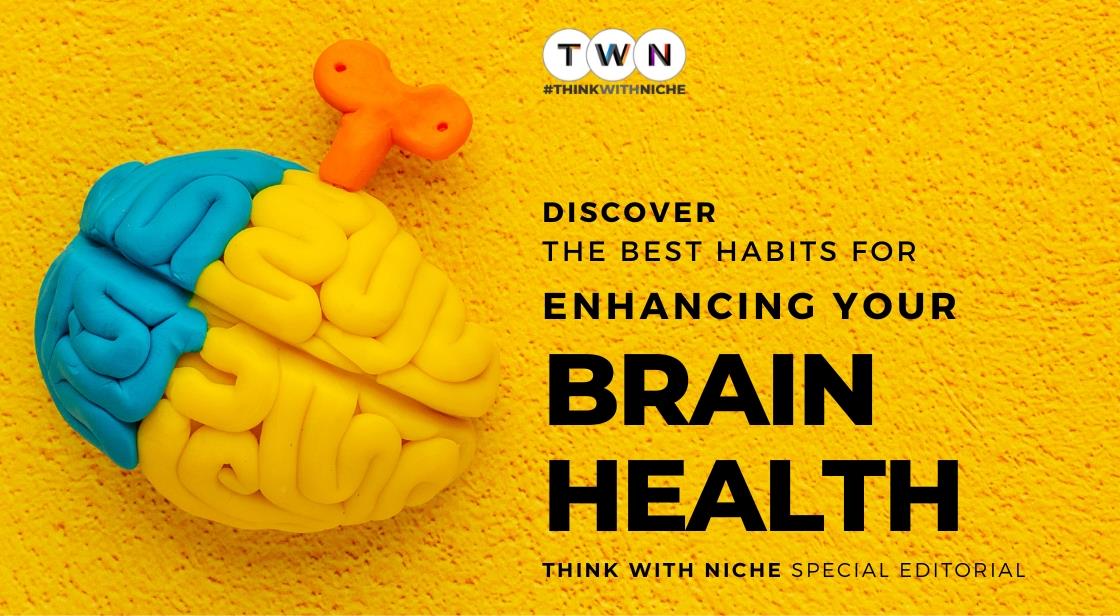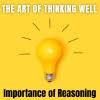Discover the Best Habits for Enhancing Your Brain Health

You May Like
Blog Post
In the contemporary era, the quest for cognitive excellence is increasingly gaining prominence. The brain, a masterpiece of complexity and functionality, is at the forefront of this pursuit.
The health of this pivotal organ is integral to our overall well-being, significantly influencing our memory, mental agility, and cognitive function. It is, therefore, imperative that we invest in strategies to enhance and maintain brain health.
Enhancing brain health is a worthwhile investment that can dramatically improve quality of life. As the latest research indicates, nurturing your cognitive function today can pay dividends in the form of improved memory, mental agility, and overall cognitive resilience in the future.
Embark on this journey of brain health enhancement, and discover the transformative power of these healthy habits
In this comprehensive guide, we unravel the best habits for enhancing your brain health. Drawing from the latest research and empirical data, we explore the considerable impacts of diet, exercise, sleep, stress management, sensory stimulation, mindfulness, hydration, brain games, and avoidance of detrimental substances on cognitive function.
Our aim is to empower the reader with knowledge and actionable insights, assisting them in making informed decisions and incorporating beneficial habits to foster a healthier brain.
Let's embark on this journey of discovery and learn how simple lifestyle modifications can yield remarkable improvements in cognitive function, memory, and mental agility.
As the central organ of the human nervous system, the brain is vitally responsible for virtually all physical and mental processes. Given its pivotal role, it is imperative to ensure its healthy functioning.
The pursuit of better brain health, however, often seems obscured by a labyrinth of unfounded claims and misinformation.
This article seeks to clear the fog and illuminate the path towards superior cognitive health nested in scientific research.
Research-backed practices are the cornerstone of the recommendations provided herein, with each one offering a tangible way to bolster brain health.
With a few simple lifestyle adjustments, the reader will find themselves equipped to unlock remarkable improvements in cognitive function, memory, and mental agility.
From integrating specific foods into your diet, engaging in regular physical activity, to incorporating mindfulness techniques, each habit is substantiated by contemporary research findings to demonstrably enhance brain health.
In the forthcoming sections, we endeavour to detail each practice and provide the reader with practical steps for application.
Habits for Better Brain Health: Boost Your Cognitive Well-being
Improving Your Brain: The Importance of Proper Nutrition
As part of the journey toward optimal brain health, one should not overlook the significant role that nutrition plays. To put it succinctly, what we consume has a direct impact on the brain's function and structure, thereby influencing our cognitive abilities, memory retention, and overall mental agility.
An abundance of scientific research supports this assertion, underscoring the essential need to incorporate a brain-friendly diet into our daily routines.
Essential Nutrients for Brain Health
Various nutrients are critically essential for maintaining and enhancing brain health. These include Omega-3 fatty acids, antioxidants, B-vitamins, and minerals such as magnesium and zinc. Balance and variety are key, as the brain requires a wide range of nutrients to function optimally.
Omega-3 Fatty Acids: These are pivotal for brain health. They are involved in building brain and nerve cells, crucial for learning and memory. Food sources include fatty fish, chia seeds, and walnuts.
Antioxidants: These combat oxidative stress and inflammation, conditions that can contribute to brain aging and neurodegenerative diseases. Berries, dark chocolate, and pecans are rich in antioxidants.
B-vitamins: These vitamins, including B6, B9, and B12, all play a role in brain health. They can slow brain decline and improve memory. They can be found in leafy greens, whole grains, and meats.
Magnesium and Zinc: These minerals are involved in many brain functions, including nerve signaling. They are found in nuts, whole grains, and legumes.
Adopting a Brain-Healthy Diet
Merely knowing which nutrients are vital for brain health is not enough. One must also learn to incorporate these nutrients into their diet effectively. This can be achieved by adhering to a balanced, varied diet rich in whole, unprocessed foods, and limiting the intake of processed foods high in sugar and unhealthy fats.
Note: It is important to understand that while a healthy diet can significantly improve brain health, it is only one piece of the puzzle. Regular exercise, getting enough sleep, and maintaining a healthy lifestyle are equally important.
Brain Boosters: The Power of Exercise in Enhancing Cognitive Function
Exercise, often overlooked, serves as a powerful catalyst for enhancing cognitive function. It is the all-natural 'smart drug' that effectively boosts mental agility, heightens memory recall, and promotes overall brain health.
The direct correlation between physical activity and improved brain function is recognized by a plethora of research studies and empirical data.
So, how does physical activity influence our brain health? The science behind this is rather fascinating. Exercise, particularly aerobic, stimulates the production of a protein known as Brain-Derived Neurotrophic Factor (BDNF).
This protein plays a pivotal role in learning, memory, and higher-level thinking. Moreover, it aids in the creation of new neurons, thereby improving neuroplasticity - the brain's ability to form and reorganize synaptic connections, especially in response to learning or experience.
Let's delve into the main ways exercise can enhance your cognitive function:
- Improved Memory and Thinking Skills: Regular physical activity increases the size of the hippocampus, an area of the brain responsible for learning and memory. Hence, fostering better memory retention and enhancing cognitive skills.
- Reduced risk of Cognitive Decline: Exercise boosts brain health by delaying the onset of cognitive decline and dementia. It achieves this by improving blood flow to the brain, reducing inflammation, and promoting neural growth.
- Improved Mood and Sleep: Physical activity triggers the release of endorphins, the body's natural mood boosters. Moreover, it aids in the regulation of sleep patterns, which is critical for maintaining healthy brain function.
- Increased Resilience to Stress: Exercise is a potent stress-buster. It bolsters the production of neurons resistant to stress and reduces the impact of stress on the brain.
With the understanding that exercise is a key component of cognitive health, how do we integrate it into our daily routines for maximum benefits? Here are few recommendations:
- Engage in regular physical activity, at least 30 minutes a day. This could consist of walking, swimming, cycling, or any other form of aerobic exercise.
- Combine aerobic exercise with strength training exercises, as they have been found to foster cognitive benefits.
- Maintain consistency. Regularity is more important than intensity when it comes to reaping the cognitive benefits linked to exercise.
- Choose an exercise routine that you enjoy, as it increases the likelihood of adhering to regular physical activity.
Remember, the key is consistency. The journey to improved brain health does not happen overnight, but with persistent effort, the transformation can be profound.
Rest and Recovery: How Sleep Impacts Brain Health
In the quest for cognitive excellence, the role of rest and recovery, particularly sleep, is often overlooked. Neuroscience has provided compelling evidence on the profound influence of sleep on brain health.
Sleep is not simply a passive state of rest, but rather a dynamic process with far-reaching implications for various cognitive functions.
The Function of Sleep: Under the Microscope
The brain undergoes a series of complex processes during sleep. These include the consolidation of memories, removal of waste products, and the strengthening of neural connections.
Significantly, neuroplasticity, the brain's ability to reorganize itself by forming new neural connections, is highly active during sleep. This continual reshaping of neural pathways is crucial for learning, memory, and adaptability.
The Impact of Sleep Deprivation on Cognitive Performance
Conversely, sleep deprivation can have detrimental effects on brain health. Lack of sleep impairs attention, working memory, long-term memory, and decision-making ability.
Chronic sleep deprivation can even predispose to neurodegenerative diseases like Alzheimer's. This is because sleep deprivation hampers the efficient removal of toxic waste products that accumulate in the brain during waking hours.
Best Practices for Quality Sleep
Recognizing the importance of sleep for optimal brain function, the following protocols can be incorporated into one's lifestyle:
- Maintain a consistent sleep schedule: Go to bed and wake up at the same time every day to regulate your body's internal clock.
- Optimize your sleep environment: Keep your sleeping area quiet, dark, and cool. Consider using earplugs, an eye mask, or a white noise machine if needed.
- Limit caffeine and alcohol: Both disrupt the quality of sleep. Avoid consuming them close to bedtime.
- Promote relaxation before bed: Engage in calming activities such as reading or taking a bath to signal your brain that it's time to sleep.
In the realm of brain health, sleep is an indispensable ally. It is not an area to be compromised or neglected. By following the above recommendations, one can optimize sleep quality, thereby supporting overall brain health and cognitive performance.
Also Read: Discover Your Direction and Meaning in Life: Embrace Change
The Mind-Body Connection: Stress Management and Mental Health
One cannot overlook the intricate relationship between the mind and the body, which is a crucial determinant of brain health. Studies have highlighted that stress, a psychological factor, has a profound impact on cognitive function. By managing stress effectively, one can enhance mental health and bolster brain functionality.
Understanding Stress
Stress, in essence, is the body's reaction to any change that necessitates an adjustment or response. This can encompass anything from physical harm to emotional distress. While a certain level of stress can act as a motivator, chronic stress can have deleterious effects on the brain and overall mental health.
Stress and Brain Health
Research has illuminated the ways in which chronic stress can affect the brain. It can engender structural changes, such as the shrinkage of the hippocampus, which is integral to memory and learning. Additionally, it can impair the function of the prefrontal cortex, which governs executive functions like decision-making and self-control.
Stress Management Techniques
Given the clear link between stress and brain health, it is imperative to employ effective stress management techniques. These can include:
Mindfulness and Meditation: Regular practice of mindfulness and meditation can ameliorate stress and enhance cognitive function. This approach fosters a heightened awareness of the present moment, helping to mitigate the impact of stress.
Physical Activity: Exercise is a potent stress reliever. It promotes the release of endorphins, the body's natural mood elevators, thereby reducing stress and improving cognitive health.
Social Interaction: Building strong, positive relationships can help alleviate stress. Social interaction can provide emotional support, offering a buffer against stress-related damage to the brain.
The Importance of Stress Management
Effective stress management is not merely a tool for immediate relief. It represents a long-term investment in brain health. By consistently managing stress, one can foster a healthier brain, potentially reducing the risk of cognitive decline in later life.
Sharpen Your Senses: Enhancing Cognitive Function Through Sensory Stimulation
The engagement of the senses is a vital component in the enhancement of cognitive functionality. The brain, being remarkably adaptable, responds positively to a variety of sensory stimuli, thereby fostering improved mental agility, memory, and overall cognitive performance. By intentionally focusing on sensory stimulation, individuals can effectively bolster brain health.
The Role of Sensory Stimulation
Research indicates that exposure to diverse sensory stimuli promotes neuroplasticity, the brain's inherent capacity to reorganize and form new neural connections throughout life. By stimulating our senses, we provide the brain with the necessary fuel for growth and development, fostering cognitive function and memory.
"Neuroplasticity underscores the potential for the brain to adapt and evolve, even in adulthood. Sensory stimulation plays a critical role in this process, fostering cognitive resilience and flexibility."
Practical Ways to Stimulate the Senses
There are numerous practical ways in which sensory stimulation can be incorporated into everyday life to enhance brain health:
- Visual stimulation: Engaging with visually stimulating activities, such as art, puzzles, and nature walks, can help to invigorate the visual cortex and improve spatial reasoning.
- Auditory stimulation: Listening to a variety of music genres, engaging in conversations, or learning a new language can enhance auditory processing and cognitive flexibility.
- Physical stimulation: Physical activities such as yoga, dance, or even simple tactile interactions with different textures can stimulate the brain's motor cortex and enhance spatial and bodily-kinesthetic intelligence.
- Olfactory and gustatory stimulation: Engaging with diverse smells and tastes, such as through cooking or wine tasting, can enhance the function of the olfactory and gustatory cortices, promoting memory and cognitive flexibility.
The Impact of Sensory Stimulation on Cognitive Health
Embracing sensory stimulation as a means of enhancing brain health can yield significant improvements in cognitive function. It fosters mental agility, bolsters memory, and, most importantly, enhances the brain's resilience, empowering it to adapt and thrive amidst new challenges and changes.
Mindful Living: The Benefits of Meditation and Mindfulness on Brain Health
Meditation, a practice that involves focusing your mind and eliminating the stream of jumbled thoughts, has shown to be more than just a tool for tranquility.
A study published in the journal NeuroImage suggests that meditation can lead to volumetric brain changes, specifically in areas associated with self-referential thoughts and emotions.
"Meditation nurtures the parts of the brain associated with positive emotions, self-control, and emotional intelligence allowing individuals to form better relationships with themselves and others."
On the other hand, mindfulness—a form of meditation where you focus on being intensely aware of what you're sensing and feeling in the moment—has also been linked with a myriad of brain health benefits. It can increase gray matter concentration in brain regions involved in learning and memory, emotion regulation, self-referential processing, and perspective taking.
Also Read: How Creative Activities Boost Happiness and Productivity
Stay Hydrated:
Remaining adequately hydrated is a paramount factor in promoting brain health. Water, constituting about 75% of the brain's weight, is critical for the optimal functioning of this intricate organ.
Dehydration, even mild, can cause significant impairments in various aspects of brain function. According to a study published in the European Journal of Nutrition, cognitive performance can decrease by as much as 13% due to even mild dehydration.
However, maintaining an optimal level of hydration has multiple cognitive benefits:
- Improved Concentration: Staying hydrated may keep the brain alert and focused, thereby boosting concentration.
- Better Mood Balance: Adequate hydration can help regulate mood and anxiety levels.
- Enhanced Memory: Proper hydration has been linked to improved short-term and long-term memory.
These benefits underscore the importance of regular fluid intake. The Institute of Medicine recommends a daily water intake of about 3.7 liters for men and 2.7 liters for women, which includes all beverages and the water in food.
“Even minor dehydration can influence mood, energy levels, and the ability to think clearly." - Nutrition Reviews, 2012
Therefore, it is essential to imbibe a culture of staying hydrated, as this simple habit can significantly enhance cognitive performance and overall brain health.
Brain Games: The Science Behind Brain Training Apps and Games
Neuroscientific research has brought a surge of interest in the power of brain training apps and games. These digital tools are designed to enhance cognitive functions, such as memory, concentration, and problem-solving capabilities.
They capitalize on the concept of neuroplasticity, which indicates that the brain can restructure itself through the formation and reorganization of synapses in response to learning or experience.
Brain games, in particular, have been studied extensively in the context of brain health. Their efficacy stems from the principle of 'use it or lose it,' chiefly supported by neuroscience research.
This principle posits that regular mental stimulation can delay, or even prevent, cognitive decline. The underlying mechanisms involve enhancing synaptic density, promoting neurogenesis, and improving cerebral blood flow.
The Science Behind Brain Training Apps
Brain training applications utilize a variety of games and exercises aimed at improving specific cognitive skills. These app-based games are typically structured around tasks that engage executive functions, attention, memory, and processing speed.
A growing body of research supports the efficacy of these applications, with studies demonstrating improvements in targeted cognitive areas after regular use of brain training apps.
According to a study published in the Journal of Neuroscience, regular use of brain training applications can improve working memory and potentially increase IQ scores.
Maximizing the Benefits of Brain Games
To reap the most benefits from brain training apps and games, it is crucial to ensure regular and consistent usage. As the effects of such mental exercises can diminish without continuous engagement, maintaining a consistent regimen is critical.
Consistency: Make brain training a part of your daily routine for optimum benefits.
Variety: Engage in a range of games to stimulate different parts of the brain.
Challenge: Select games and exercises that are challenging but achievable to maintain interest and engagement.
Protecting Your Brain: Understanding the Effects of Drugs and Alcohol on Cognitive Function
The neurobiological implications of substance abuse are not to be underestimated. Both illicit drugs and excessive alcohol consumption can wreak havoc on the brain's intricate architecture, resulting in degraded cognitive functionality.
While the immediate effects might seem transitory, the long-term consequences can be dire, potentially leading to permanent cognitive impairment.
Alcohol, when consumed in moderation, has little to no detrimental effects on the brain. However, chronic excessive drinking can lead to a condition known as Alcohol-Related Brain Damage (ARBD).
ARBD can cause severe cognitive impairments including memory loss, poor judgement, difficulty in problem-solving and a decrease in motor coordination. The damage is caused by the direct toxic effects of alcohol on the brain and the nutritional deficiencies often associated with alcoholism.
On the other hand, illicit drugs such as cocaine, methamphetamine, and opioids can have varied and profound effects on the brain. These drugs can alter the brain's reward system, leading to addiction, and can also cause significant damage to brain structures and functions.
For instance, cocaine use can lead to cognitive deficits in attention, impulse control, and decision-making, while methamphetamine abuse can result in significant reductions in grey matter in the brain.
Understanding the effects of these substances on the brain is crucial for maintaining optimal cognitive health. Here are a few best practices:
- Moderate your alcohol consumption: The Centers for Disease Control and Prevention (CDC) recommends limiting alcohol intake to up to one drink per day for women and up to two drinks per day for men. This moderation can help maintain a healthy brain.
- Avoid illicit drugs: Illicit drugs can have severe and long-lasting effects on the brain. It is best to avoid these substances altogether to prevent potential damage to cognitive function.
- Seek professional help if needed: If you are struggling with substance abuse, it is important to seek professional help. Many effective treatments are available that can assist in recovery and restore cognitive health.
Note: It is important to understand that while a healthy diet can significantly improve brain health, it is only one piece of the puzzle. Regular exercise, getting enough sleep, and maintaining a healthy lifestyle are equally important.
Ensuring proper nutrition for the brain is not a daunting task. It is about making mindful choices and committing to a healthier lifestyle. By nourishing your brain with essential nutrients and adopting a brain-friendly diet, you are taking proactive steps towards maintaining and improving cognitive function, memory, and mental agility.
Social Connection: How Building Strong Relationships Can Boost Brain Health
Unfolding the complexities of the human brain and its health, scientific research has illustrated the profound impact of social connections on cognitive longevity and vitality.
Strong, healthy relationships offer an exceptional platform for stimulating the brain and promoting its overall health. Humans, by nature, are social creatures, and the brain thrives on the rich interactions that emanate from social connections.
It is within the tapestry of these interactions that the brain finds its rhythm, maintaining its elasticity and enhancing cognitive functions.
The Neurological Benefits of Social Interactions
Emerging evidence from neuroscientific studies indicates that social interactions engage and challenge different areas of the brain, promoting a robust neural network.
Conversations, for instance, demand quick thinking, understanding of language, and emotional empathy, thereby exercising the brain's linguistic, cognitive, and emotional sectors.
Consequently, maintaining regular social interactions can serve as a powerful, natural antidote against cognitive decline and dementia.
Building Strong Relationships for Brain Health
Building strong relationships, however, requires a conscious effort. One must strive to maintain a broad social network that incorporates a diverse range of individuals.
This approach provides an array of experiences and perspectives that can challenge and stimulate the brain. Furthermore, engaging in meaningful conversations with friends and loved ones not only nurtures emotional health but also helps maintain cognitive vitality.
- Active Social Life: Cultivating an active social life can lead to a range of cognitive benefits. Regular interactions with friends and loved ones can keep the brain active and engaged.
- Community Involvement: Participating in community activities or volunteer work is an excellent way to broaden your social network and create opportunities for stimulating interactions.
- Learning Together: Engaging in learning activities with others, such as book clubs or language classes, can provide intellectual stimulation and foster social connections.
- Maintaining Close Relationships: Nurturing close relationships with family and friends can provide emotional support, stress relief, and cognitive stimulation.
The Consequences of Social Isolation on Brain Health
Contrary to the cognitive benefits of social interaction, social isolation or loneliness can have detrimental effects on the brain's health. Studies have shown that loneliness and social isolation can lead to an increased risk of conditions such as Alzheimer's disease.
Therefore, fostering social connections is crucial to maintaining a healthy brain.
Conclusion
In conclusion, the path to enhanced brain health is not a winding labyrinth but rather a series of manageable, evidence-based strategies. These involve nutritional adjustments, regular physical exercise, adequate sleep, mindfulness practices, and continual learning. By implementing these lifestyle modifications, you, the reader, stand to reap substantial cognitive benefits.
You May Like
EDITOR’S CHOICE












